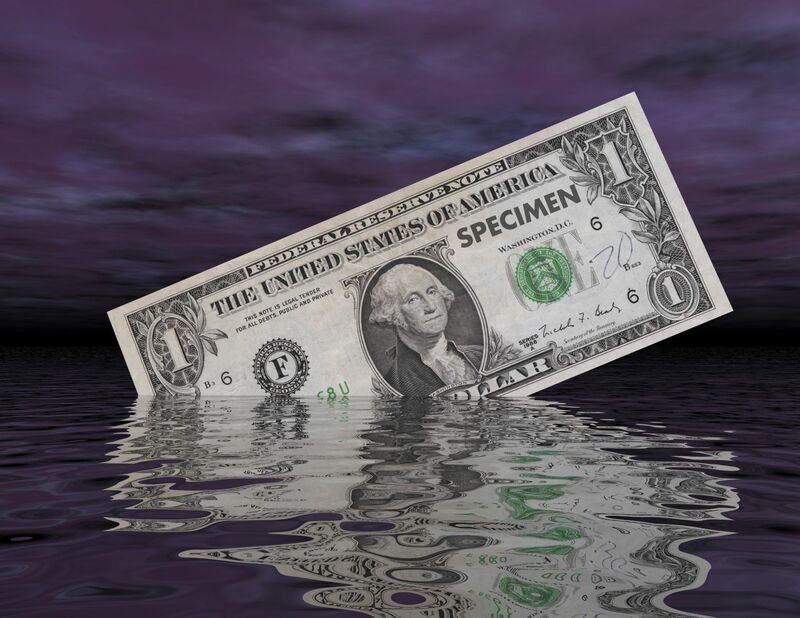
The dollar index (DXY00) on Friday fell by -0.36%. The dollar retreated after Friday after talks to raise the debt ceiling hit a roadblock when Republican negotiators left a meeting with White House representatives and said talks were on a “pause.” The dollar also moved lower Friday after Fed Chair Powell said the Fed may not have to raise interest rates as high as earlier expected due to tightening credit conditions.
Friday’s comments from Fed Chair Powell were dovish and bearish for the dollar. Fed Chair Powell said, "While the financial stability tools helped to calm conditions in the banking sector, developments there on the other hand are contributing to tighter credit conditions and are likely to weigh on economic growth, hiring, and inflation. As a result, interest rates may not need to rise as much as they would have otherwise to achieve our goals." Powell also signaled he is inclined to pause rate increases at the June FOMC meeting when he said, "Policymakers can afford to look at the data and the evolving outlook to make careful assessments."
EUR/USD (^EURUSD) on Friday rose by +0.32%. The euro Friday shook off early losses and moved higher on a weaker dollar along with hawkish ECB comments from ECB President Lagarde and ECB Executive Board member Schnabel. EUR/USD Friday initially weakened after the German Apr PPI rose at the slowest pace in 2 years, a dovish factor for ECB policy.
ECB President Lagarde said interest rates need to be "sustainably" high to curb inflation, and the ECB needs to "buckle up and deliver" its 2% inflation target.
ECB Executive Board member Schnabel said, "The ECB can do whatever is needed to bring inflation back to our 2% target in a timely matter. This implies raising interest rates to sufficiently restrictive levels and keeping them at that level for as long as necessary."
German Apr PPI eased to +4.1% y/y from +6.7% y/y in Mar, the slowest pace of increase in 2 years.
USD/JPY (^USDJPY) on Friday fell by -0.43%. The yen on Friday moved higher on dollar weakness and stronger than expected Japanese inflation news that showed Japan's Apr national CPI ex-fresh food and energy rose at the fastest pace in 41 years. Higher T-note yields Friday limited the upside in the yen, along with dovish comments from BOJ Governor Ueda, who said the BOJ would take its time when deciding on monetary policy adjustments.
Japan's Apr national CPI ex-fresh food and energy rose +4.1% y/y, the largest increase in 41 years.
The Japan Mar tertiary industry index unexpectedly fell -1.7% m/m, weaker than expectations of a +0.3% m/m increase and the biggest decline in 1-3/4 years.
BOJ Governor Ueda reassured that the BOJ will continue with easing when he said, "It is appropriate to take time to decide on adjustments to monetary easing toward a future exit."
June gold (GCM3) on Friday closed up +21.80 (+1.11%), and July silver (SIN23) closed up +0.427 (+1.81%). Precious metals on Friday closed moderately higher. A weaker dollar Friday was supportive of metals prices. Also, dovish comments from Fed Chair Powell, who signaled the Fed may pause its rate hike campaign at the June FOMC meeting, were bullish for metals prices. In addition, a jump in inflation expectations has boosted demand for gold as an inflation hedge after the 10-year breakeven inflation rate today rose to a 3-week high. Finally, safe-haven demand for precious metals increased Friday as stocks fell when debt-ceiling talks stalled after negotiators said bipartisan talks were on a "pause."
On the date of publication, Rich Asplund did not have (either directly or indirectly) positions in any of the securities mentioned in this article. All information and data in this article is solely for informational purposes. For more information please view the Barchart Disclosure Policy here.

.png?w=600)




